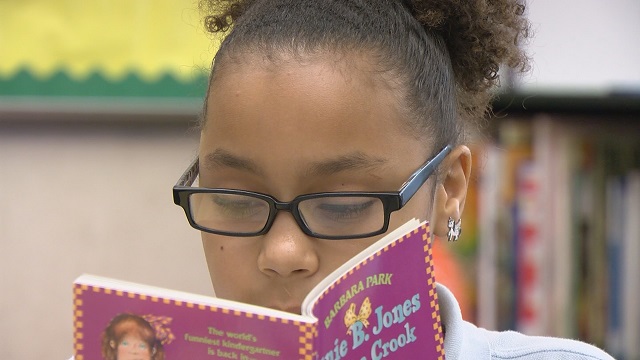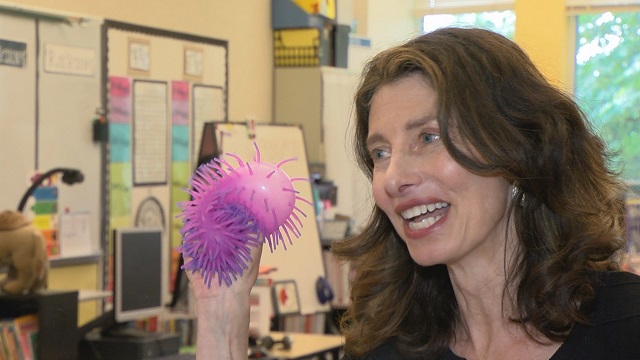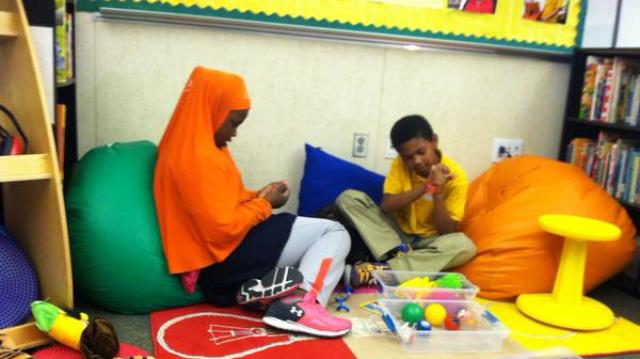PORTLAND, Ore. (KOIN) — Fortune Gregory is a 5th-grader at Rosa Parks Elementary who likes Junie B. Jones books. On this day, she was reading “Junie B. Jones is Not a Crook.”
“I like all Junie B. Jones books,” the 11-year-old said. “They’re interesting.”

She was sitting in Oregon’s first SuperSensory Literacy Space, a spot designed to help kids with ADHD, austism or dyslexia learn differently and thrive.
Fortune, who has ADHD, said sometimes reading for her is hard “because after I read I can remember some of it but I can’t remember all of it.”
What helps her learn and focus are tools educators call “fidgets.” She likes to use Silly Putty during tests – “if I’m stressed or something” – and she also uses a vibrating pillow on her back.
“If I’m about to take a test I grab this and, like, I take a couple minutes for it to be on my back so I can calm down and I still leave it on while I’m taking the test.”

Christy Scattarella, the Executive Director of the Shadow Project, told KOIN 6 News there are more than 200 books tailored to the needs of children with ADHD, autism or dyslexia. There are also 80,000 titles in their audio library “because we have a lot of kids who read with their ears.”
The Shadow Project is a non-profit that partners with special education teachers. Rosa Parks is the first school to get the SuperSensory Literacy Space, but four others were chosen in the pilot project. Another one is being installed at Bridger Elementary.
Eight more will be installed over the next school year, with 10 the year after that, she said. Her goal is a “SuperSensory Literacy Space in every special education classroom in Oregon.”
Scattarella said the “fidgets” actually help kids calm themselves “so they can focus and read.”
Imagine, she said, you have ADHD and you’re trying to pay attention and listen to directions. But your body just wants to move, and your attention is on that.
“The fidget is calming, so kids can focus on what they’re doing.”

The audio books are very useful, too, she said. “Perhaps over time they won’t need that audio book anymore and they can graduate to reading the book itself.”
Special education teacher Shara Klein said she sees her students focus a little more.
“They’re not needing to get up and wander around the classroom,” Klein said. “They can really get that movement piece that they need out and just be able to sit and focus.”
Fortune Gregory said she hasn’t always liked school but she does now. “I want to be a pediatrician,” she said.
Her advice for other kids?
“Try your best and don’t give up,” she said. “And if you have fidgets around you, use them.”